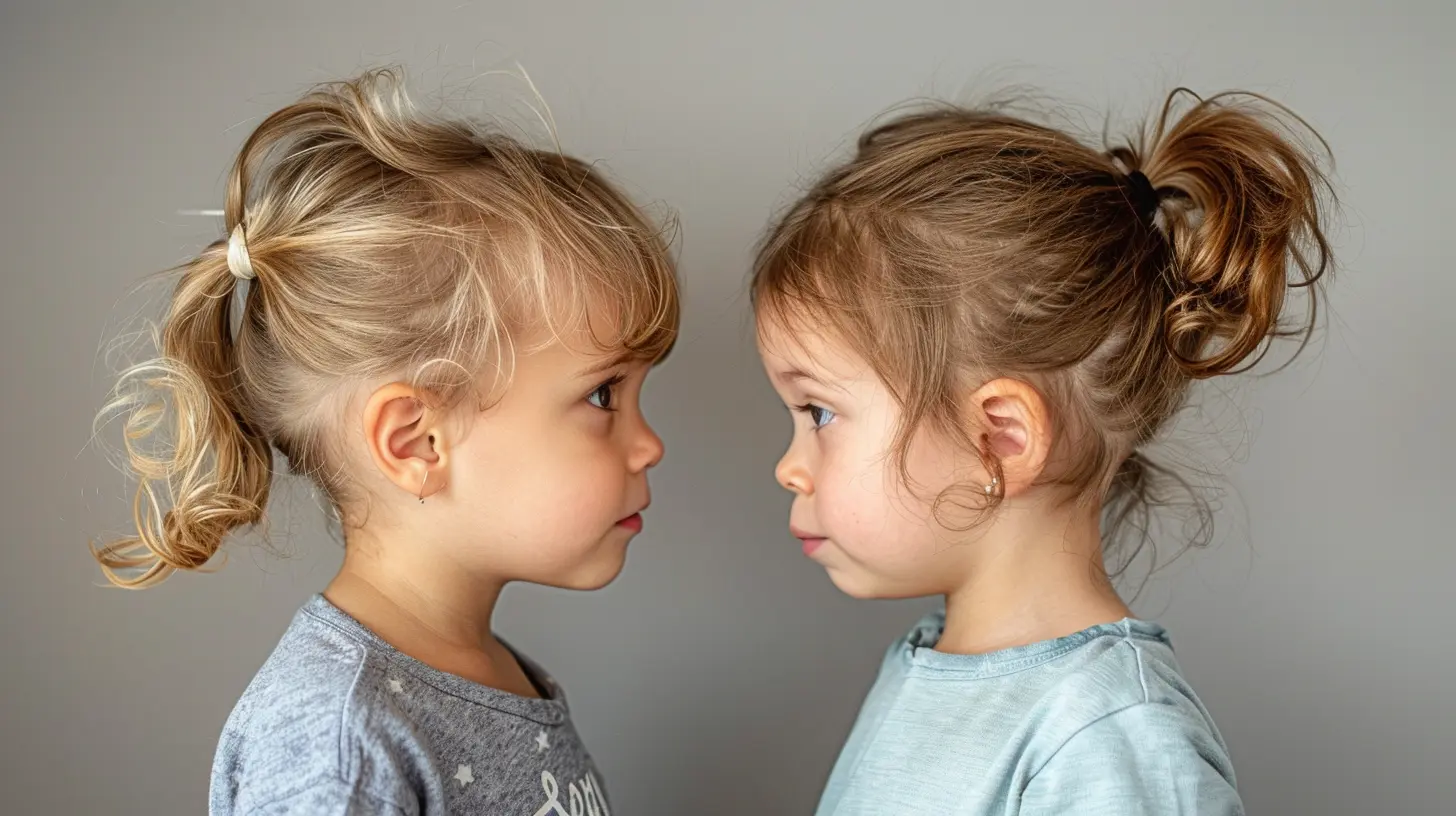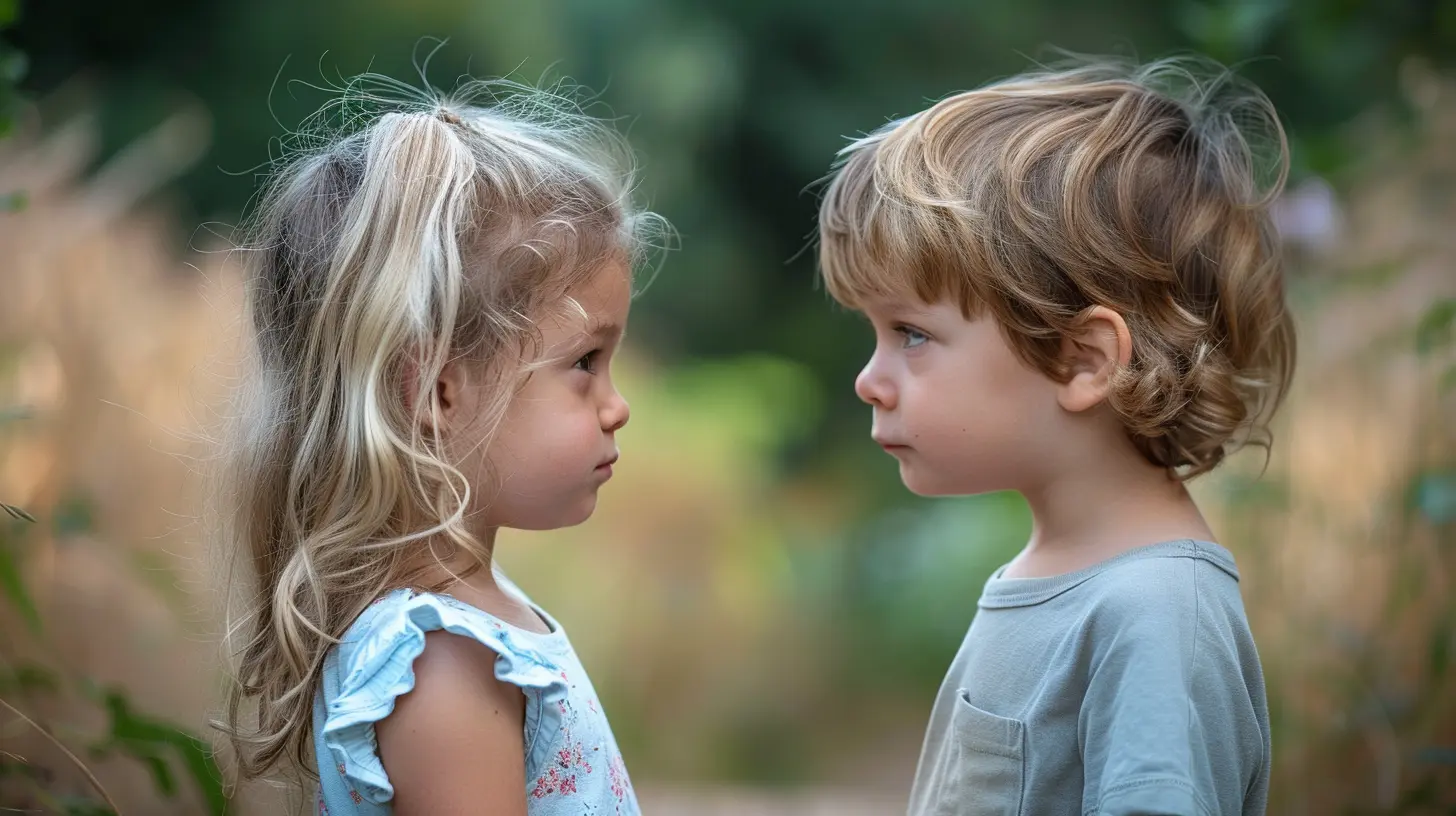Managing Differences: When Siblings Have Opposite Personalities
24 October 2025
Parenting is one wild roller coaster, isn't it? Just when you think you've figured it all out with one child, the next one comes along and totally rewrites the rulebook. One likes silence and books, the other blasts music like they live at a rock concert. One's a neat freak; the other's room looks like something exploded. If you're nodding your head right now—welcome to the world of managing siblings with opposite personalities!
Let’s dive into the chaos (and beauty) of raising uniquely different kids under the same roof. You’ll walk away with real strategies, a few laughs, and maybe even a fresh perspective.

Why Are Siblings So Different?
It’s baffling, right? Same parents, same house, same rules—and yet, they’re like night and day. So what gives?Nature vs. Nurture: It's Not a Simple Equation
Sure, genetics play a part. But personality is shaped by more than just DNA. Birth order, individual life experiences, and even the way a parent subconsciously interacts with each child can all influence how they turn out.Think about it—your firstborn likely had your undivided attention, while the second had to share you from day one. The dynamic shifts. Each kid adapts and finds their own space, often leading to differing personalities.
The Role of Temperament
From day one, kids show personal traits. One baby might be easygoing and chill, while another is intense and sensitive. These early temperaments often grow into full-blown personalities. The trick? Learning to spot these patterns early and figuring out how to work with, not against, them.
The Challenges Of Opposite Personalities
Living with contrasting personalities can be like trying to listen to jazz and heavy metal at the same time—it’s noisy and confusing. Here’s where it gets tricky for us parents.Clashes and Competition
When personalities don't mesh, conflict often follows. The talkative, always-in-your-face extrovert can easily overwhelm the quieter, introverted sibling. Arguments, misunderstandings, and even resentment can creep in.And let’s not forget about competition. Opposites don’t just clash—they compare. Constantly. One's achievements might unintentionally make the other feel inadequate, even when there’s zero intent.
Unequal Attention
It’s easy to get caught up in the drama queen or the squeaky wheel. The mellow, go-with-the-flow kid? They sometimes get overlooked because they’re just not as “demanding.” But they still need attention—just in different ways.
Strategies To Handle Opposite Sibling Personalities
So, how do you juggle kids who seem to be from entirely different planets? It’s not about changing them—it’s about adapting your parenting to meet their needs. Here's how to do it.1. Embrace Their Individuality
You wouldn’t try to make your cactus behave like a sunflower, would you? Every child is unique, and that’s the beauty of it.- Comment on their strengths more than their differences.
- Avoid labels like “the smart one” or “the funny one.” Labels can trap kids in boxes they didn’t ask for.
- Encourage each child to explore their interests, even if they’re polar opposites.
Make it your mission to understand what makes each child tick.
2. Tailor Your Parenting Approach
One size definitely doesn't fit all—not in parenting. The strict bedtime that works perfectly for your routine-loving child might cause a meltdown in your free-spirited one.- Introverted children may need more alone time to recharge.
- Extroverted ones might thrive on social interaction and group activities.
Customize your discipline, praise, and even your bonding time to fit each child’s style. It’s not favoritism—it’s fairness.
3. Foster Mutual Respect, Not Forced Closeness
Trying to force siblings to be best friends works about as well as trying to microwave a frozen pizza with the plastic still on. Instead:- Teach them to respect each other's space, personality, and interests.
- Avoid making one the “example” or the “role model.” That creates unnecessary pressure.
- Set ground rules for kindness and communication—like “No yelling,” “No mocking,” and “Everyone gets a turn.”
Let them build their own relationship on their own terms.
4. Create Shared Experiences (On Neutral Ground)
Common ground is your secret weapon. It might be hard to find, but it’s worth the hunt.- Try family board game nights, movie marathons, or simple cooking sessions.
- Pick activities that neither child "owns" already—start fresh.
- Get their input—what do they both tolerate or enjoy, even if only a little?
These neutral experiences become the bridge between their different personalities.
5. Encourage Teamwork (With Defined Roles)
Siblings can learn to complement, not compete. Assign them tasks where they can contribute differently but equally.- The organized one can plan a family trip.
- The creative one can design the itinerary or make a travel video.
This builds mutual appreciation. They start seeing each other not as rivals, but as partners with unique skills.
6. Intervene Strategically When Conflict Arises
You don’t need to referee every small squabble, but don’t be too hands-off either.- Let them try to resolve conflicts on their own, stepping in only if it escalates.
- When you do intervene, focus on understanding, not blaming.
- Use moments of tension as opportunities to coach emotional intelligence and conflict resolution.
Teach them how to listen, respond calmly, and express their needs without turning the house into a battlefield.

What NOT To Do
Sometimes, it’s not what you do—but what you avoid—that makes all the difference.Don’t Compare
Even subtle comparisons can leave deep scars. “Why can’t you be more like your sister?” is the fastest route to resentment. Each child is on their own journey; let them walk it in their own way.Don’t Favor the Easy Child
Let’s be honest—it’s tempting to gravitate toward the child who’s more like you, easier to manage, or simply quieter. But the tough cookies need just as much love. Sometimes more.Don’t Expect Mirroring
Just because one child responds well to emotional pep talks doesn’t mean the other will. Parenting is not a copy-paste job.Long-Term Benefits Of Embracing Differences
Here’s the silver lining: kids who grow up with opposite siblings? They often end up being more adaptable, open-minded, and emotionally intelligent.They learn early on that not everyone sees the world the same way—and that’s a gift. It builds empathy, patience, and people skills they'll use for the rest of their lives.
They might not be best friends today, but down the road, the quiet one might call the loud one for advice, and the loud one might lean on the quiet one for calmness. Their differences, once a source of friction, become strengths.
When To Seek Help
Sometimes, differences run deeper than just personality. If conflicts turn violent, one child feels consistently isolated, or there’s ongoing anxiety or depression—don’t hesitate to reach out.A child psychologist or family therapist can work wonders. Think of it as hiring a coach to help your family play better as a team.
You’ve Got This!
Parenting siblings with opposite personalities isn't about eliminating conflict or creating clones. It’s about balance. It’s about understanding who each child is, shining a light on what makes them special, and helping them coexist—even if they don't always agree.And remember—you’re doing better than you think. Even on the messy days. Especially on the messy days.
So, take a deep breath. Grab your coffee. And remind yourself: different doesn't mean difficult. It just means your family is full of color instead of shades of gray.
all images in this post were generated using AI tools
Category:
Sibling RivalryAuthor:

Karen Hurst
Discussion
rate this article
1 comments
Elowyn McDermott
Embracing the unique personalities of each sibling can foster resilience and understanding. Celebrate their differences as opportunities for growth, teaching them to appreciate diverse perspectives. Encourage conflict resolution and cooperation, reminding them that their varied strengths can complement one another, ultimately strengthening their bond as they navigate life together.
October 28, 2025 at 5:30 AM

Karen Hurst
Absolutely! Embracing and celebrating sibling differences fosters growth, resilience, and stronger bonds, enhancing their ability to resolve conflicts and appreciate diverse perspectives.


